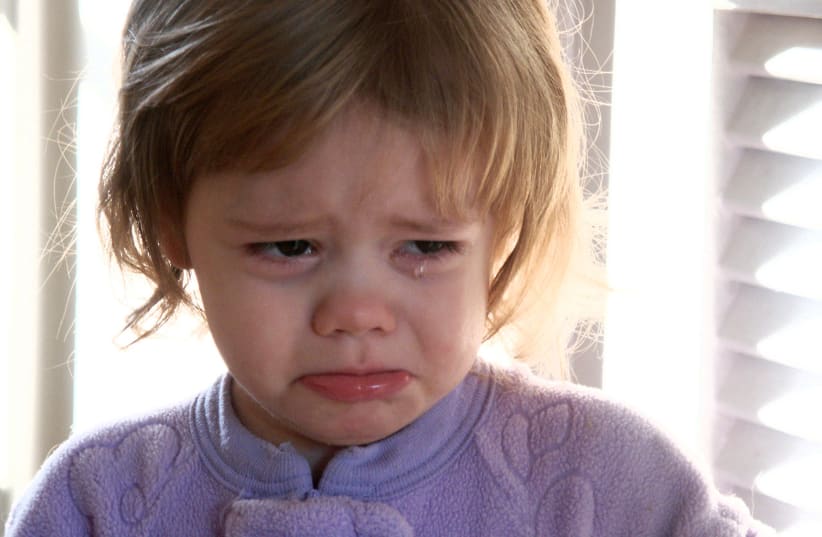Your kids, since they were infants, have expressed themselves through crying since they can’t say what they’re feeling. Crying can express a range of negative emotions such as sadness, anger, being insulted or frustrated, etc.
Dana Hovesh, a certified parental counselor at the Adler Institute and for the Education Ministry, wants you to know that your kids are affected by how you react when they cry. Some parents treat a child’s cries with great concern and are overprotective. They anxiously run and extract their child from any small mishaps. This reaction enables kids to learn that crying equals a parent’s attention, and they’ll use it as a tactic whenever they need something.
Some parents find it hard to handle crying, will interpret it as weakness and inability to cope and therefore will want the child to immediately stop crying with statements such as: "Enough, you aren’t a baby.” Such a response to crying eliminates children’s feelings and won’t help them say if something is tough for them or if they’re feeling sad. You’re asking them to suppress their feelings which isn’t healthy.
Others ignore their kids and think or say: “They’ll cope,” "This will teach them,” etc. These reactions leave the child alone to cope with their feelings. This is really unhealthy, as kids need to gradually learn how to handle emotions, plus they certainly won’t learn what empathy is.
![Baby crying [Illustrative] (credit: PIXABAY) Baby crying [Illustrative] (credit: PIXABAY)](https://images.jpost.com/image/upload/f_auto,fl_lossy/t_JD_ArticleMainImageFaceDetect/443347)
What’s the best way to handle crying?
First, try to slowly calm your child, hug them as they regulate themselves. Don’t panic or react strongly; remember that crying is how they express emotions. Kneel so that your kids are eye-to-eye with you; give them a feeling that you understand them. Don't say words which nullify their feelings like: "Stop crying, you’re big", "nothing happened" or try to distract them. Instead, acknowledge and legitimize their feelings; name them so they’ll learn how to express themselves in words instead of bursting into tears. For example: "Are you sad now?"
You don’t want to pay instant attention to every cry, as your kids will only know how to cry and not express themselves verbally. Yet, don’t discourage crying completely, as kids need to gradually learn how to express emotions properly. Listen to your kids, give them the feeling that you understand them. Although their crying seems rather silly and unnecessary, their experiences and feelings are real and frustrating. Gradually, with the correct parental guidance, kids will learn to handle problems, process emotions verbally, and move on to the next activity.
